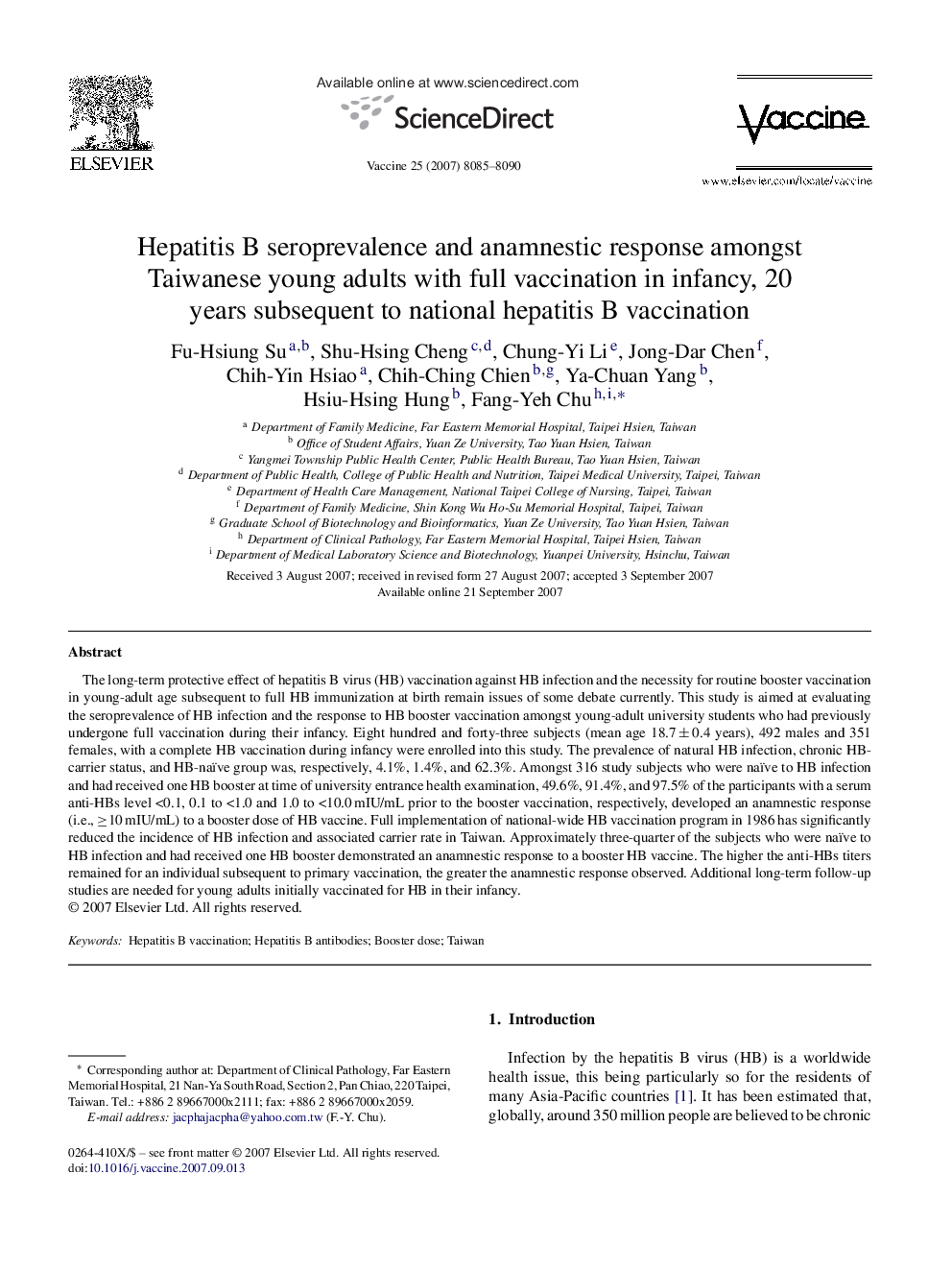| Article ID | Journal | Published Year | Pages | File Type |
|---|---|---|---|---|
| 2408988 | Vaccine | 2007 | 6 Pages |
The long-term protective effect of hepatitis B virus (HB) vaccination against HB infection and the necessity for routine booster vaccination in young-adult age subsequent to full HB immunization at birth remain issues of some debate currently. This study is aimed at evaluating the seroprevalence of HB infection and the response to HB booster vaccination amongst young-adult university students who had previously undergone full vaccination during their infancy. Eight hundred and forty-three subjects (mean age 18.7 ± 0.4 years), 492 males and 351 females, with a complete HB vaccination during infancy were enrolled into this study. The prevalence of natural HB infection, chronic HB-carrier status, and HB-naïve group was, respectively, 4.1%, 1.4%, and 62.3%. Amongst 316 study subjects who were naïve to HB infection and had received one HB booster at time of university entrance health examination, 49.6%, 91.4%, and 97.5% of the participants with a serum anti-HBs level <0.1, 0.1 to <1.0 and 1.0 to <10.0 mIU/mL prior to the booster vaccination, respectively, developed an anamnestic response (i.e., ≥10 mIU/mL) to a booster dose of HB vaccine. Full implementation of national-wide HB vaccination program in 1986 has significantly reduced the incidence of HB infection and associated carrier rate in Taiwan. Approximately three-quarter of the subjects who were naïve to HB infection and had received one HB booster demonstrated an anamnestic response to a booster HB vaccine. The higher the anti-HBs titers remained for an individual subsequent to primary vaccination, the greater the anamnestic response observed. Additional long-term follow-up studies are needed for young adults initially vaccinated for HB in their infancy.
